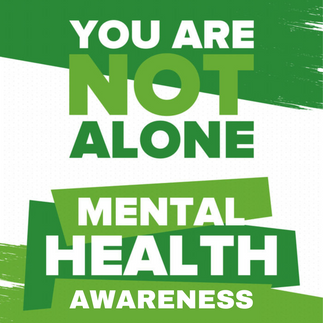Mental Health Awareness by ALC/BCC Emmanuel Rock: Signs of Depression to Look for in Your Teenager
- The Weekly Ledger

- Oct 31, 2022
- 2 min read
Updated: Nov 2, 2022
By: Emmanuel L. Rock, MS, ALC, NCC
Associate Licensed Counselor/Board Certified Counselor
Weiss Lake Counseling Services, Mental Health Service
839 West Main Street, Centre, AL
256-927-5920
You can ask any parent what their most significant job is in this world, and they will
respond by protecting their child. But as your children get older, you need to adapt to
their changing needs. For example, learning how to spot the signs of depression in a
teenager is a skill that parents should possess. Suicide rates are on the rise, the
COVID-19 pandemic is spreading, and teenagers have been isolated from the real
world because of a virtual world that is rapidly changing.
No matter how much parents work to keep their kids safe, it’s almost impossible to
protect children against mental health issues such as depression. If you want to know
how to recognize the signs of depression, here are a few to understand.
- Mood Swings - Let’s face it, teenagers can get moody at times. But there is a huge
difference between being moody and having depression. Teenagers who are
suffering from depression will show more frequent mood swings, coming mostly out
of the blue. They may also experience anger outbursts, sadness, and irritability.
- Academic Problems - Problems in your teenager’s academic performance may show
signs of depression. This could be a drop in their grades or low-test scores. Teachers
may send you emails or letters regarding your child's behavior. Sometimes your
teenager may skip school entirely or arrive late for class. Being in touch and asking
questions about their school life helps you recognize patterns.
- Lost of Interest -Lost of interest in things that they used to enjoy is another sign. They
make have played a particular sport and may have decided to quit the team or not
play the upcoming season. They may have enjoyed gaming and they are no longer
interested. If you see this, this is a major indicator of possible depression.
- No Motivation or Energy - If your teenager lacks motivation or energy, this may look
like laziness when in fact it is depression. Those suffering will show a significant
decline in motivation or lack of energy. They may sleep more than usual and not want
to get out of bed. They may constantly forget tasks such as house chores and
homework assignments. They may also have a hard time putting words and
sentences together coherently.
Importantly, if you, as a parent, suffer from depression, there is a good chance that your
teenager will experience it as well. If you notice one or more of these signs of
depression, it’s important to seek help from a mental health professional. This
professional should be a person that your teen should trust. Depression is not anything
to take likely. It needs attention and a plan of action. Remember, life is short, parenting
is not. Parenting teenagers can feel like an eternity. However, the more knowledge and
skills you learn about your teenager, the easier it will be.
.png)












Comments